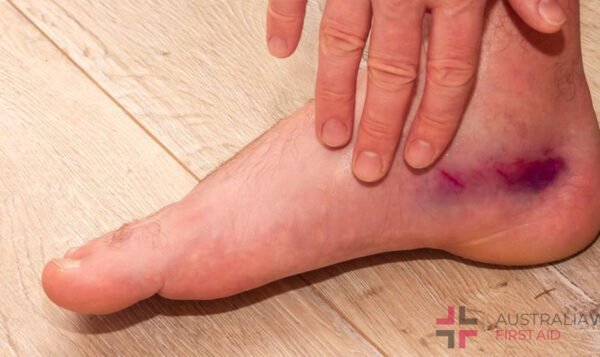The Significance of International Medical Clinics

In an increasingly interconnected world, access to quality healthcare is no longer limited to one’s home country. International medical clinics have emerged as a valuable resource, providing a wide range of medical services and specialized care to individuals, expatriates, and travellers. These clinics cater to the diverse needs of a global population, offering high-quality healthcare services, multilingual support, and a seamless healthcare experience. This article explores the growing significance of the best international medical clinic and their role in shaping the landscape of global healthcare.
1.Comprehensive Healthcare Services
International medical clinics offer comprehensive healthcare services, encompassing various medical specialities, diagnostics, and treatments. These clinics are equipped with state-of-the-art medical technology and facilities, allowing for accurate diagnoses and effective treatments.The positive effects of hcg trt in maintaining testicular functions is very dependent on the viability of the testes at the time of diagnosis. HCG is less likely to be as effective as a fertility aid if the patient has low testosterone as a result of a primary hypogonadism.From primary care and preventive medicine to specialized services like cardiology, orthopaedics, dermatology, and dentistry, international medical clinics provide a wide range of services under one roof.
By offering diverse medical services, these clinics cater to the healthcare needs of both local communities and international patients. Whether it’s routine check-ups, vaccinations, or complex medical procedures, international medical clinics ensure individuals have access to high-quality healthcare services regardless of their location.
2.Multilingual Support and Cultural Sensitivity
One of the key advantages of international medical clinics is their ability to cater to the linguistic and cultural needs of a diverse patient population. These clinics often have multilingual staff who can communicate effectively with patients from different countries and cultural backgrounds. This linguistic diversity eliminates language barriers and ensures clear communication, enabling accurate medical history sharing diagnosis, and treatment planning.
Additionally, international medical clinics prioritize cultural sensitivity and understanding. They are attuned to the specific healthcare needs, preferences, and cultural practices of different patient groups. By respecting and incorporating cultural nuances into their services, these clinics create a welcoming and inclusive environment for patients, fostering trust and facilitating effective healthcare delivery.

3.Accessible Healthcare for Expatriates and Travelers
Expatriates, frequent travellers, and individuals living away from their home country often face unique healthcare challenges. International medical clinics bridge this gap by providing accessible and reliable healthcare services tailored to the needs of expatriate communities and travellers.
For expatriates, international medical clinics offer continuity of care, ensuring that they receive the same standard of medical services they are accustomed to in their home countries. These clinics often collaborate with international health insurance providers and maintain electronic health records, facilitating smooth transitions and ensuring that medical information is readily accessible across borders.
Travellers can also benefit from international medical clinics, as these facilities provide specialized travel medicine services. These services include pre-travel consultations, vaccinations, and advice on disease prevention specific to travel destinations. In case of illness or medical emergencies while abroad, international medical clinics staffed with experienced online GP serve as a reliable resource, providing prompt medical attention and assistance.
4.Medical Tourism and Specialist Expertise
International medical clinics have contributed to the rise of medical tourism, where individuals travel abroad specifically for medical treatments and procedures. These clinics attract patients seeking specialized expertise, advanced technologies, shorter waiting times, and cost-effective healthcare options.
Internationally renowned specialists often work at these clinics, offering their expertise in complex medical procedures and treatments. By leveraging their experience, expertise, and access to advanced medical technologies, international medical clinics have become preferred destinations for individuals seeking high-quality healthcare services.
5.Collaborative Networks and Knowledge Exchange
International medical clinics foster collaboration and knowledge exchange among healthcare professionals. These clinics often have partnerships with leading medical institutions, research centres, and academic organizations. This collaboration allows for the exchange of best practices, participation in clinical trials, and access to the latest advancements in medical research.
Such collaborations contribute to the continuous professional development of healthcare professionals within international medical clinics, ensuring that they stay updated with the latest medical developments and deliver cutting-edge care to patients. The exchange of knowledge and expertise also benefits the local healthcare ecosystem, as healthcare professionals in the region can learn from the best practices of international medical clinics and incorporate them into their practice.
6.Quality Assurance and Accreditation
International medical clinics often adhere to stringent quality assurance measures and international standards. Many clinics seek accreditation from renowned healthcare accreditation bodies such as the Joint Commission International (JCI) or the International Organization for Standardization (ISO). These accreditations signify that the clinic meets high standards of patient safety, quality of care, and operational excellence.
By obtaining accreditation, international medical clinics demonstrate their commitment to delivering exceptional healthcare services and ensuring patient satisfaction. Patients can have confidence in the quality and safety of care provided by accredited clinics, making international medical clinics a preferred choice for those seeking reliable healthcare services abroad.
7.Integrating Local and Global Healthcare
International medical clinics play a crucial role in integrating local and global healthcare systems. They collaborate with local healthcare providers, hospitals, and clinics, forming a network that enhances the overall healthcare landscape of the region. This integration allows for the sharing of expertise, resources, and best practices, ultimately benefiting both local communities and international patients.
Additionally, international medical clinics contribute to the local economy by attracting medical tourists, generating employment opportunities, and stimulating the growth of related industries such as hospitality and tourism. The presence of international medical clinics can also lead to advancements in healthcare infrastructure and services in the local region, benefiting the entire community.
Conclusion
International medical clinics have become indispensable components of the global healthcare ecosystem. With their comprehensive services, multilingual support, and cultural sensitivity, these clinics cater to the diverse healthcare needs of a global population. By offering accessible and high-quality healthcare services, international medical clinics ensure that individuals, expatriates, and travellers receive the care they need, regardless of their location.
Through collaborations, knowledge exchange, and quality assurance measures, international medical clinics contribute to the advancement of healthcare practices both locally and globally. They promote the integration of local and global healthcare systems, bringing together the expertise and resources needed to deliver exceptional care.
As the world becomes increasingly interconnected, international medical clinics will continue to play a pivotal role in providing specialized care, facilitating medical tourism, and bridging healthcare gaps. Embracing the rise of international medical clinics allows individuals to access quality healthcare services, foster cross-cultural understanding, and promote global collaboration in the pursuit of better health for all.



